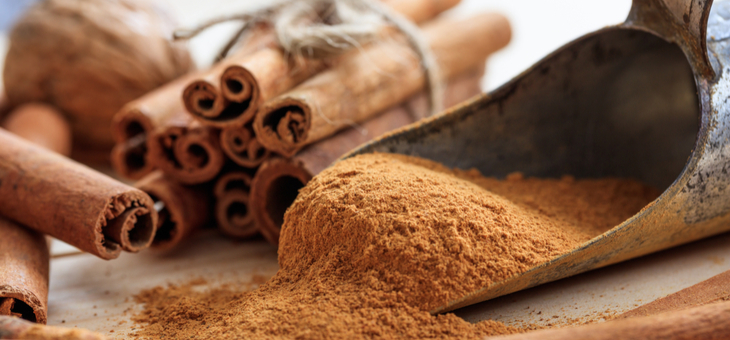Cinnamon is a spice obtained from the inner bark of cinnamon trees. It is used mainly as an aromatic condiment and flavouring additive in a wide variety of foods, but it also has a long history of use in traditional medicines.
Cinnamon was so highly prized among ancient nations that it was regarded as a gift fit for monarchs and even for a deity. Its source was kept mysterious in the Mediterranean world for centuries by those in the spice trade to protect their monopoly as suppliers.
Here are some of the reported health benefits of cinnamon.
Lower heart-disease risk
Cinnamon has been linked to a reduced risk of heart disease, the world’s most common cause of premature death. In people with type 2 diabetes, one gram or about half a teaspoon of cinnamon per day has been shown to have beneficial effects on blood markers. It reduces levels of total cholesterol, ‘bad’ LDL cholesterol and triglycerides, while ‘good’ HDL cholesterol remains stable.
Fighting infection
Cinnamaldehyde, one of the main active components of cinnamon, may help fight various kinds of infection. Cinnamon oil has been shown to effectively treat respiratory tract infections caused by fungi. It can also inhibit the growth of certain bacteria, including Listeria and Salmonella. The antimicrobial effects of cinnamon may also help prevent tooth decay and reduce bad breath.
Boosting metabolism
Cinnamon is also thought to boost metabolism, because your body uses more energy to process the spice than it does for other foods.
Anti-inflammatory properties
Studies show that this spice and its antioxidants have potent anti-inflammatory properties, which can be useful for treating conditions such as arthritis.
Lower blood pressure
The addition of cinnamon to the diet has been suggested as a means to lower blood pressure, although research is mixed on the benefits, and how cinnamon fights hypertension is not fully understood. On average, as little as one half teaspoon of cinnamon a day was of benefit. But not all studies have shown this spice improves blood pressure, and evidence-based data on the dose, safety and effectiveness of cinnamon in the management of hypertension – and other medical conditions – is lacking.
Related articles:
Worst food brands revealed
Best and worst foods for your liver
Do you have heart risk factors?
Disclaimer: This article contains general information about health issues and is not advice. For health advice, consult your medical practitioner.

